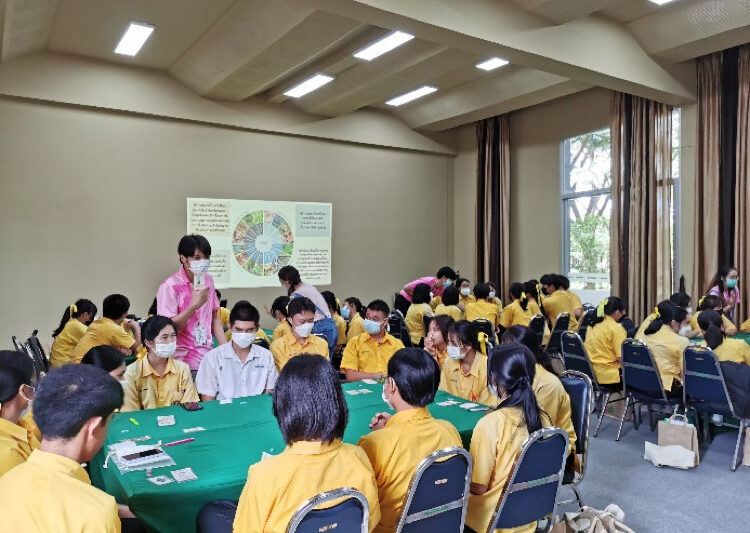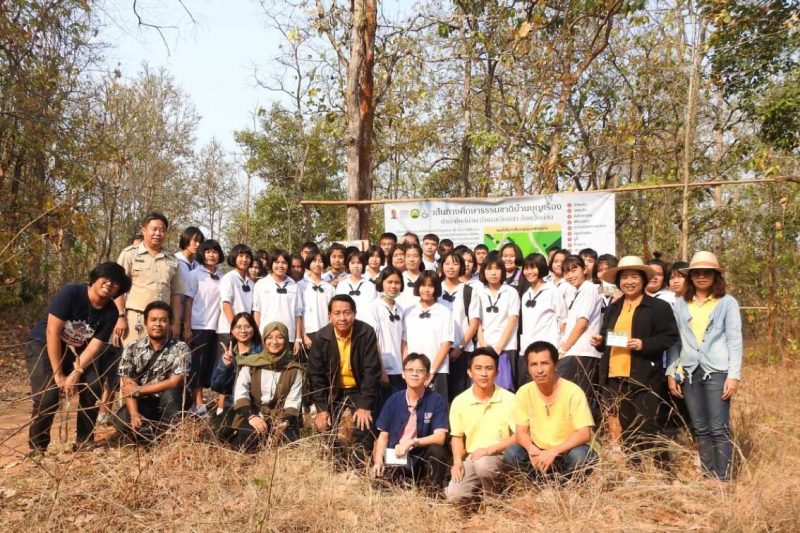Chulalongkorn University builds an oral health promotion system for vulnerable groups at the margins through the Digital Health Platform
The United Nations (UN) has declared oral disease a major global public health issue. The situation of untreated dental caries in permanent teeth is the most common disease in the world, affecting 35% of the global population. Meanwhile, 11% still suffer from severe periodontitis, leading to tooth loss. And the incidence of oral cancer continues to rise steadily. Of course, oral diseases like dental caries remain the biggest threat to people’s quality of life worldwide. In Thailand, over 50% of children have dental caries problems. Adults also face issues like tooth loss, periodontitis and widespread gingivitis.
Furthermore, data shows that in 2017, only 9.6% of Thais had access to dental care services. This resulted in 20,638 million baht in economic losses from treatment costs. Of these patients, over 56% had to pay out-of-pocket expenses themselves. Compared to only 9% for general medical services, this clearly shows inequality in Thai people’s access to dental care. Oral diseases evidently remain a serious threat, especially in rural areas where the trend of oral diseases is rising, unlike in Bangkok and urban areas where it is declining.
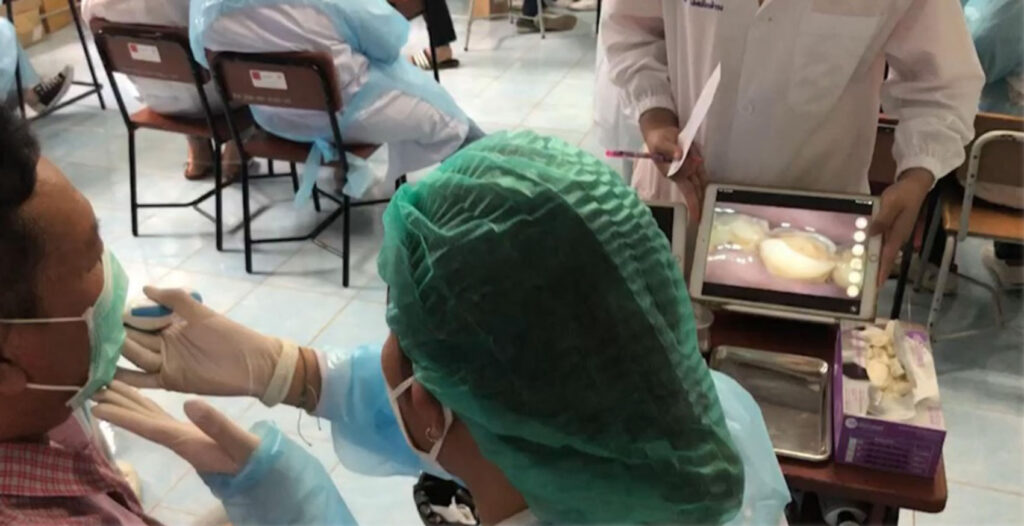
Here is an attempt to make that section smoother:
Therefore, treating oral diseases is an urgent necessity to relieve symptoms and prevent permanent tooth loss. To tackle the problem at its root, promoting oral health is crucial to reducing new cases, since treatment alone is insufficient and has huge economic and social impacts. The Faculty of Dentistry at Chulalongkorn University thus sought to develop the dental care system to benefit society at large, especially high-risk groups facing economic, social and environmental obstacles.
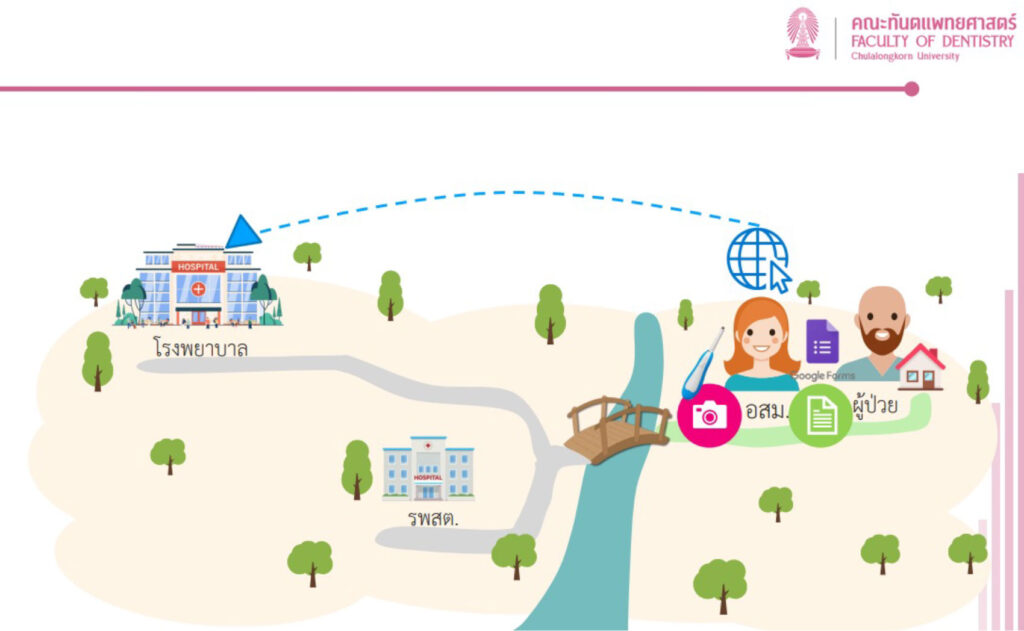
To this end, Chulalongkorn University’s Faculty of Dentistry has developed a Teledentistry platform funded by the Office of the National Broadcasting and Telecommunications Commission (NBTC) through its Public Interest Telecommunications Research and Development Fund. This is part of the “Development of Dental Care Services and Treatments via Digital Technology on High-Speed Digital Networks” project.
Teledentistry is a telehealth system and process for delivering dental care services, as follows:
- Synchronous (live, real-time) communication between patients and dental care providers via audiovisual telecommunications technology.
- Asynchronous collection and transfer of data such as general information, intraoral photographs, digital dental x-rays or impressions sent to dentists for evaluating patients’ oral health.
- Remote patient monitoring to provide services to distant areas.
- Mobile health by developing portable patient communication devices, enabling the general public easy access to dental health education.
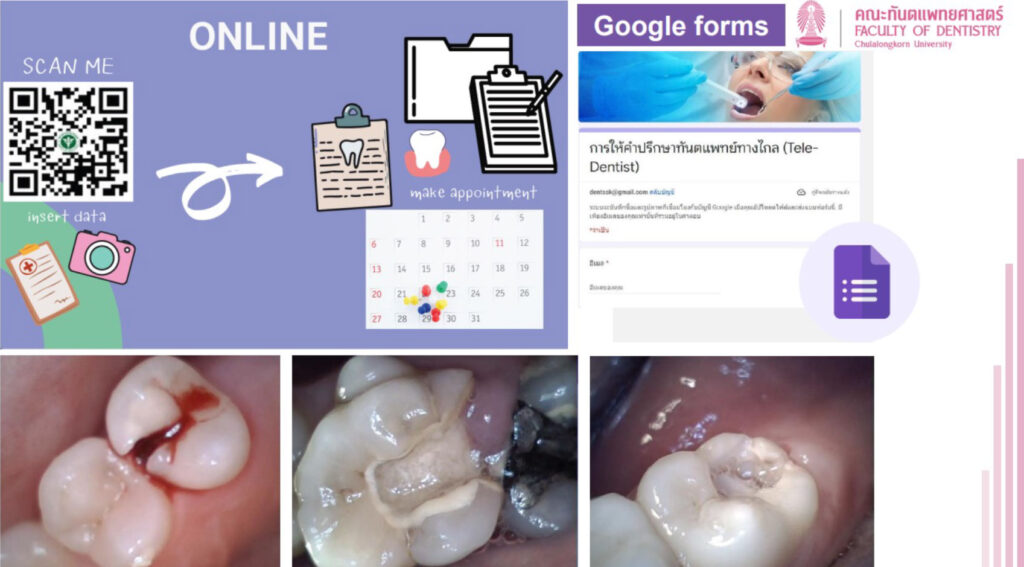
The project has already been implemented with vulnerable groups, including the disabled, the elderly, underprivileged communities, prisoners and ethnic tribes in Nan province, such as Tai Lue, Mien, Hmong, Khmu, Lua, Khmer, Yao, Mien, Malabri and Lwa tribes, reaching over 100,000 people. Village health volunteers (VHVs) provide basic oral screening using still images and video intraoral cameras, offer oral hygiene advice, and refer patients for further services. Digital technology like intraoral scanners has also been used to provide dentures for 1,000 patients.
In addition, project teams have provided training workshops to develop skills of public health personnel, dentists, dental nurses, public health officials and VHVs in Nan, Saraburi, Sisaket and Pathum Thani provinces. Dental student volunteers have also provided services using digital dental technologies like intraoral cameras and scanners, treating 300 more patients in each province twice yearly. An application was also developed for real-time distance consultation for dentists in rural areas. Over 80% of patients and dental personnel have expressed satisfaction.
This project’s success lies in increasing vulnerable high-risk groups’ access to much-needed dental care, improving the efficiency and value of services, developing digital skills of dental public health personnel, and enabling convenient access to basic dental health education.
BY
Faculty of Dentistry, Chulalongkorn University
Others

